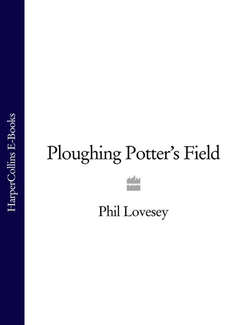Читать книгу Ploughing Potter’s Field - Phil Lovesey - Страница 5
PREFACE
Оглавление‘How d’it start? Christ’s sake, stupid or something? Me old man gave me mum one. Nine months later, I dropped out of her cunt. Never done biology?’
The anatomy lesson you’ve just read was given to me by Francis James Rattigan during one of a series of interviews I conducted with him as a research student in September/October 1997.
Frank Rattigan – the Beast of East 16, intended original subject of my doctorate thesis in forensic psychiatry. Crude, offensive, challenging Frank. Dubbed ‘Beast’ by the tabloids – their game, not his, a circulation-inspired pseudonym, good for a couple of weeks until the next psycho arrived to darken the blood-red front pages.
Can’t remember the name? The crime? Neither could I to begin with. Perhaps cynics might argue that there are too many Frank Rattigans around these days, too many ‘beasts’ loose on the streets. Today’s psycho – tomorrow’s chip-paper.
Then I was sent a thick brown file by Dr Neil Allen at Oakwood High Security Mental Hospital, prior to my meetings, stuffed with newspaper clippings, Rattigan’s previous criminal record, crime-scene photographs, police interviews and a vast battery of psychiatric reports. After a grim few days spent digesting its often unpalatable contents, ten-year-old memories of an East End slaughterhouse resurfaced, a girl turned to porridge by a man who could offer no motive, save that he did what he did ‘for fun’.
On the last page of the dossier was a photograph, the Beast himself, face set in a challenging sneer, eyes seeming to dare me to unlock the depravity which lurked inside. But the longer I looked, the more I became aware of something hiding behind the bravado – a sadness born out of the insanity which led him to his present incarceration. And as I immersed myself deeper into his enigma, I determined that there were answers to his crime, had to be, must be. I hardly dared to think that I, a humble student of the criminal mind, might find them; but the bait was down, I’d taken it, and ironically was hooked many years ago by a past which I’d refused to ever really acknowledge.
But what benefits does hindsight ever really bring? Looking back, I see myself as incredibly naive, suddenly excited by the chance of putting textbook theories into practice. I was finally being allowed into the real world, absolutely confident I had the necessary mettle to make it. I, Adrian Rawlings, imminent Doctor of Forensic Psychiatry, would ‘solve’ Rattigan. I would find the missing motive which had baffled the experts for so long.
Perhaps my desire to succeed was born from the ashes of failure, the ruins of redundancy. Maybe forensic psychiatry became a way of reinventing myself, a chance to analyse others without ever having to look too deeply at myself. But Rattigan changed all that, as surely as holding a mirror to my face.
Parts of this journal take the form of transcripted recordings made with Rattigan over two months during my initial thesis research. I’ve concentrated on passages which I feel are relevant – to Frank and myself. In reality, over seven hours of taped conversations exist. You may wish to hear them in their entirety. But I doubt it. His voice … corrodes.
It’s almost impossible to really ‘like’ a person like Frank. His personality forbids it, couldn’t cope with the affection. But perhaps somewhere in the recesses of our lost humanity, there lurks an untapped reservoir of empathy, made stagnant by the greed of the last hundred years. And sometimes, as I found to my cost, the only way to truthfully understand the motives of another, however distasteful, is to look into that dark pool and recognize a little of their madness in ourselves.
We simply have to be honest.
Adrian Rawlings.
December 1997.
